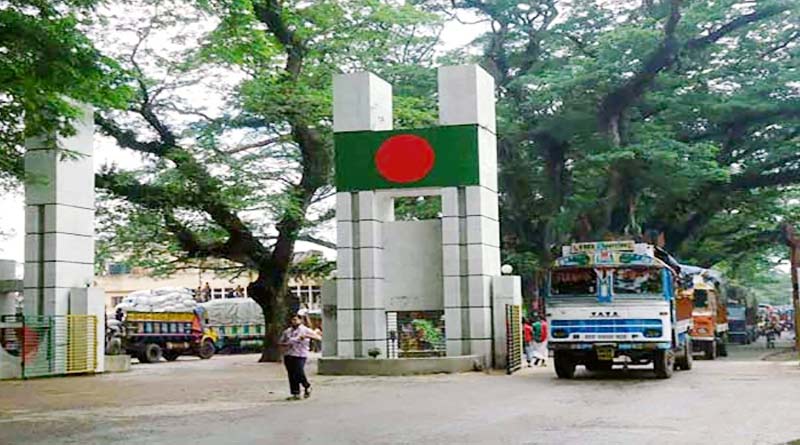On February 27, 45-year-old Abinash Kumar Mandal (name changed) woke up before first light, packed a few belongings in a frayed bag, locked the doors of his modest home in Ujirpur in Bangladesh’s Barisal district, even as the morning azan rang out from the village mosque.
Before heading for the local bus stand, Abinash turned to take one last look at his home. He then quickened his pace. Before long he was seated in a bus headed for Tungipara in Gopalganj.
Abinash’s next destination was Gopalganj town from where he took another bus to Khulna. His next destination was Jessore from where he took a rickshaw to the Benapole immigration checkpoint. The passport (with a valid visa for India) that he carried in his breast pocket showed him to be a Bangladeshi national. This document would soon be history.
“It didn’t take long to clear immigration at Benapole and across the border at Petrapole (in West Bengal’s North 24 Parganas district). I was on Indian territory by 1 pm,” Abinash said over phone from his place of refuge in Chakdah in West Bengal’s Nadia district.
“I intentionally took a circuitous route to reach Benapole. An arrest warrant, issued by the police at the behest of Ghazi Abu Hanif, the local strongman, was pending against me since the January 7 election in which musclemen and toughs working for Rashed Khan Menon, the official Awami League candidate,” Abinash said, recalling the post-poll violence that was unleashed in Ujirpur in an election that was widely boycotted by the people across most districts of Bangladesh.
Ujirpur’s minority Hindus, who backed and worked for Menon’s rival, Faiyyzul Huq Raju, the great grandson of Sher-e-Bangla Fazlul Huq and also a “dummy” Awami League candidate, were specially targeted. “This caused such fear among the Hindus of Ujirpur that since January 7 as many as 25 families – roughly 100 persons, including children – did not waste mush time to pack up and leave for the safety of West Bengal,” Abinash said.
“They have no intention of returning to Ujirpur,” Abinash said emphatically, adding that most of the “fresh migrants” entered India as undocumented migrants while the a few crossed the border after due immigration formalities.
The Barisal-2 constituency covers two upazilas – Ujirpur and Banaripara. About 2,000 Hindu families live in these two upazilas. Following the clashes of January 7, more Hindus left Banaripara than Ujirpur, according to local residents and Awami League sources.
While the election-related violence was reported in a few local newspapers, the flight of the Hindus to India was almost fully ignored by the media even though pre and post-poll clashes and the targeting of Hindus has been a recurrent occurrence in the last 15 years that the Awami League under Sheikh Hasina has been in power.
There is nothing to indicate that the Indian government is aware of the latest flight of Hindus from Ujirpur and Banaripara to West Bengal even as the Indian government intends to implement the Citizenship (Amendment) Act that is aimed to pave the way for the smooth grant of Indian citizenship to members of the minority community from a few South Asian countries, including Bangladesh.
Abinash is not quite aware of this legislation even as he is busy putting his life together in Chakdah. It is not that Abinash’s decision to turn his back on Bangladesh was a spur-of-the moment thought. Almost a year ago, Abinash’s wife and two teenaged children immigrated to India (Chakdah) while he bided his time.
“Most Hindus in Ujirpur and Banaripara rely on alternative plans when faced with adversity, especially violence against them,” Abinash said. But now that Abinash has been reunited with his family, he has other worries: to find suitable work. He was an insurance agent in Ujirpur but he is not sure whether his “status” now in India would fetch him new work.
He knows this would involve documentation such as Aadhar and PAN cards for himself and his family members. Besides, he apprehends other vicissitudes involving his children’s education. Abinash said that he is willing to “handle” the hardships of a “new immigrant” who does “not want to ever return to his land of birth”.
Abinash’s benefactor in Bangladesh, a Dhaka-based Awami League leader, thrust Taka 4,500 into his pocket when he left his land of birth for West Bengal. Today, even as he scours for work to survive in a foreign land, the most important aim in his “life” now is to “get rid of the green (Bangladeshi) passport”.















